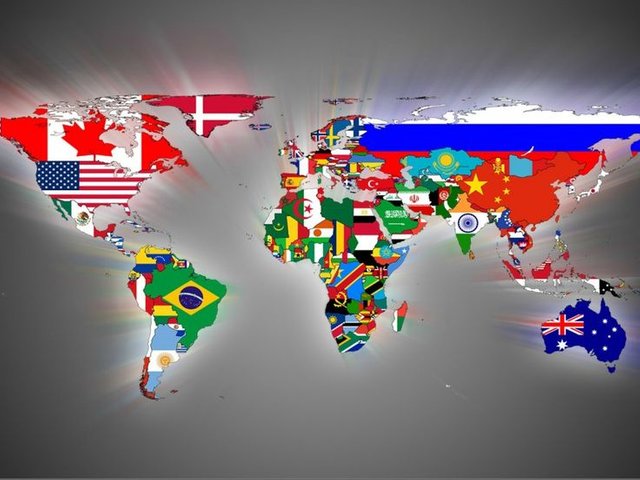
As a devoted student to the field of International Relations, the understanding that the world governing system is in an anarchic state becomes clearer the more I watch the news. That is not to say that all countries are at war with each other and destruction is rampant, but, that there is the lack of a single world government, a Leviathan one can say.
As a result of this and the Westphalian doctrine of country sovereignty, while UN backed policies and protocols are signed by global government heads, they are not always ratified nor adhered to by everyone. Such as the case where US President, Donald Trump, in May 2017 withdrew from the Paris climate agreement based on his ‘America First’ campaign slogan. His rationale being that the climate deal would destroy the domestic job market, especially in energy-intensive sectors. Of course this move was condemned by not only other domestic and international actors, but from major multinational corporations such as Apple, Google, Shell etc.
In this vein, the question of whether blockchain technology can prevent cooperation failure among state actors should be examined.
Why blockchain and what specialties can it bring to the global political environment?
Blockchain is a cryptographically linked digital ledger of transactions distributed across all participants of a peer-to-peer network. In existing use cases, peers are individuals, but nothing can prevent states from adopting blockchain technology to govern their international interactions. This technology consists of 4 parts: blockchains, cryptography, peer-to-peer networks, and consensus mechanisms.
Firstly, blockchain is a data structure in which information is stored in blocks and linked to previous blocks. These blocks are linked via cryptography, which allows everyone to verify that a transaction occurred while preserving data privacy. Thirdly, blocks are transmitted to the entire network, thereby building resilience against attacks. Lastly, every blockchain is governed by a consensus mechanism, thus rendering central authorities for validating transactions unnecessary. If a network participant wants to initiate a new transaction — which is a new block in the chain — all network participants must first accept its validity. As the integrity of a participant cannot be readily assumed, the consensus mechanism holds the key to the integrity of the data. Blockchain technology is especially useful where participants need to access, verify, send, or store information securely.
Coming out of this technology, smart contracts, which are pieces of computer code that run on top of a blockchain and allow for conditions to be imposed upon transactions, can be explored by state actors. These contracts execute automatically when pre-specified conditions are met. This technology can enhance the credibility of state commitments by allowing for guaranteed execution of inter-state contracts. Additionally, it offers a secure way of making side payments as part of agreements, hence allaying distribution problems.
International Relations scholars have long been perplexed by the issue of how cooperation among egoistic states can emerge and be sustained under anarchic conditions. Some would contend that the only reason states cooperate with each other is if it falls in line with national interest. A rational-institutionalist view would contend that states will adopt blockchain technology where the net benefits of doing so are greatest. Adoption in this sense refers to encoding all international agreements on the blockchain so that they inherit its properties. In an anarchic world, states would fear for their survival when being misled. Like traditional international organisations, blockchain technology can serve as a commitment device, but with the added benefit of enforcing commitments under certain instances.
Because smart contracts cannot be halted, they imply guaranteed punishment; therefore, states bound by them are disciplined by the credible threat of punishment. State behaviour as such can be constrained only if states have staked resources on their commitments — ‘Proof of Stake’ in blockchain jargon. While no authority can force states to re-enforce their commitments with hard assets, the blockchain allows them to signal commitment by putting monies into custody. Smart contracts automate the commitment cycle by making explicit the conditions under which states will lose their staked asset.
Realist scholars would contend that by tightening the grip of international law through smart contracts, blockchain technology might discourage states from making substantial commitments in the first place. However, all governments — in particular democratically elected, fixed term ones — have incentives to lock in policy. By adopting institutions from which exit is costly, they can effectively tie the hands of their successors and limit policy reversals. In addition, guaranteed enforcement allows states to make more dependable commitments to each other, without exposing themselves to excessive risk because smart contracts can be programmed to not come into effect as long as a quorum of states complies with them.
Thus, the prospect of guaranteed enforcement can provide sufficient incentives for states to cooperate voluntarily through a blockchain-based governance system. If enforcement problems and the related lack of dependable commitment are the main inhibitors to intergovernmental cooperation, blockchain technology, and particularly smart contracts, hold some promise to bolster cooperation.
Got questions? Feel free to visit our Q&A platform: www.aqoom.com